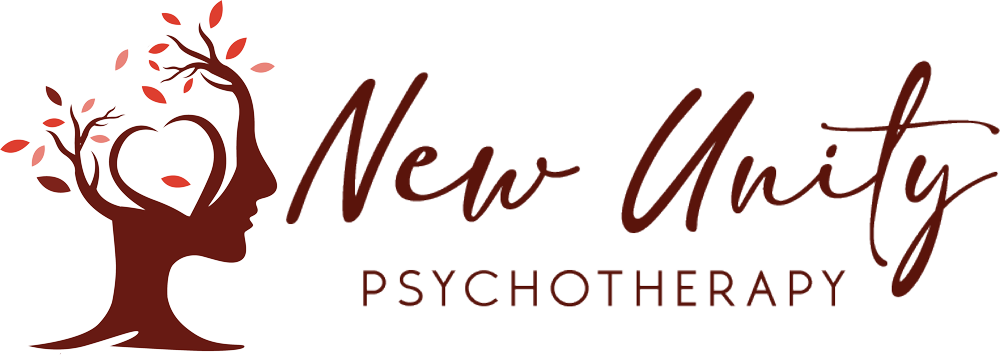Navigating Relational Transitions and Changes at New Unity Psychotherapy
- Marriage or Commitment: Transitioning from dating to a long-term commitment or marriage often brings up new challenges related to emotional intimacy, communication, and shared responsibilities.
- Divorce or Breakup: The end of a relationship can be one of the most difficult transitions to navigate. Feelings of grief, loss, anger, and confusion often accompany the process of separation.
- Moving in Together: Sharing a living space can bring about new relational dynamics, requiring adjustments in communication, boundaries, and shared responsibilities.
- Family Changes: Significant shifts in family structure—such as becoming parents, blending families, or caring for aging parents—can place new demands on relationships and require emotional flexibility.
Relational transitions are a normal part of life, but they can also be emotionally overwhelming. Therapy can provide a supportive space to process these changes and develop strategies for navigating them with greater ease.
Some of the key areas we’ll focus on in therapy include:
- Processing Emotional Responses: Relational transitions often bring up strong emotions, from excitement to fear, sadness, or anger. We’ll explore and validate these feelings, helping you process them in a healthy and constructive way.
- Building Emotional Resilience: Change can feel destabilizing, but together we’ll work on developing emotional resilience. This means learning how to adapt to change without feeling overwhelmed or losing your sense of self.
- Strengthening Communication Skills: Effective communication is key during relational transitions. Whether you’re negotiating new responsibilities in a partnership or working through the emotional fallout of a breakup, we’ll focus on building strong communication skills that foster understanding and connection.
- Coping with Loss or Uncertainty: If you’re going through a breakup or divorce, the feelings of loss and uncertainty can be overwhelming. In therapy, we’ll explore ways to cope with these emotions, rebuild your sense of identity, and create a vision for your life moving forward.
Some common emotional reactions to relational transitions include:
- Anxiety and Fear: Even positive changes, like moving in with a partner or getting married, can bring up fears about the future or concerns about how the relationship will evolve.
- Grief and Loss: Breakups, divorces, or other endings in relationships often involve grieving the loss of what once was, as well as the future you had envisioned with that person.
- Excitement and Hope: Not all transitions are negative! New beginnings—such as starting a life with a partner or expanding your family—can bring feelings of excitement and hope for the future.
In therapy, we’ll create a safe space for you to explore these emotional reactions. By gaining insight into how change is affecting you emotionally, we can work on developing strategies to help you move through the transition with greater clarity and peace.
Some of the coping strategies we’ll work on include:
- Emotional Regulation: Learning how to regulate your emotions during times of change is crucial for maintaining balance and avoiding overwhelm. We’ll work on techniques like mindfulness, deep breathing, and self-soothing to help you stay grounded during challenging moments.
- Problem-Solving and Decision-Making: During transitions, you may face decisions about your relationship, living arrangements, or future plans. Together, we’ll develop problem-solving skills that help you approach these decisions with confidence and clarity.
- Self-Care and Support Networks: Taking care of yourself during relational transitions is key to staying emotionally balanced. We’ll explore ways to practice self-care, build your support network, and maintain your physical and mental well-being.
- Establishing Healthy Boundaries: As roles shift in your relationship, it’s important to set and maintain healthy boundaries. We’ll discuss how to communicate your needs clearly while respecting the needs of your partner or family members.
- Adjusting to New Roles: Transitions often involve stepping into new roles—such as becoming a spouse, parent, or caregiver. We’ll explore the emotional challenges of these roles and work on finding a sense of balance and fulfillment within them.
- Building a New Relational Foundation: If you’re in the process of rebuilding a relationship after a significant change—whether it’s a marriage, a breakup, or a family shift—therapy can help you establish a new, healthier foundation for the future.
- Processing Grief: Losing a relationship can bring about deep feelings of grief, not only for the relationship itself but also for the future you envisioned. We’ll create space for you to process this grief and find a path toward healing.
- Rebuilding Your Sense of Identity: After a breakup or divorce, it’s common to feel a loss of identity, especially if the relationship was a central part of your life. Together, we’ll work on rebuilding your sense of self, focusing on your strengths and the new possibilities that lie ahead.
- Finding Closure and Moving On: Closure doesn’t always come easily, especially after the end of a significant relationship. In therapy, we’ll explore what closure looks like for you and how you can move forward with a sense of peace and hope for the future.
Reach out to me, Melissa N. Douglas, LCSW, at New Unity Psychotherapy by calling (914) 844-6682 to schedule your free 30-minute consultation.
your healing journey today.
